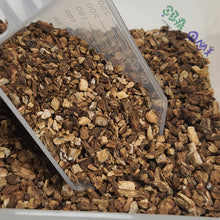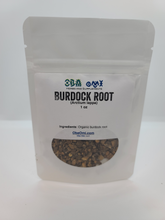Burdock Root (Arctium lappa)
Other names: bardana
Many of us are first introduced to this herb after running through fields as a child and finding the burs stuck to our socks, shoe strings and hair. This childhood annoyance takes on new meaning while listening to hours of Dr. Sebi lectures. Burdock root has been used by Native Americans, Pennsylvania Dutch and the Chinese for centuries. Burdock root assists with removing toxins from the blood, is an aphrodisiac, treats skin issues, reduces inflammation, and contains antioxidants.
Burdock Facts:
- Burdock can help treat skin issues such as acne, eczema, canker sores, and boils by reducing inflammation and supports wound healing
- Burdock may help with allergies, asthma, bronchitis, hay fever, lung discomfort
- Burdock is also used to treat kidney problems, liver conditions, blood disorder, gout, rheumatism, and to purify the blood.
Burdock contains protein, carbohydrates and Vitamins A, C, E, P, PABA(Para-aminobenzoic acid) and B-Complex. Burdock contains the minerals iron, sulphur, silicon, copper, iodine and zinc. Burdock also contains a polysaccharide called inulin which has been used to treat "high blood fats, including cholesterol and triglycerides. It is also used for weight loss, constipation, diarrhea, and diabetes." -WebMd
Burdock root is most often consumed as a tea, encapsulated or even cooked. Burdock is an essential alkaline herb that everyone should have in their home apothecary!



